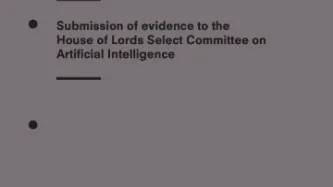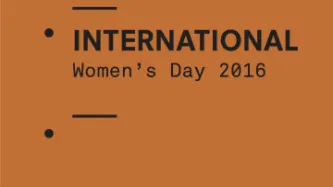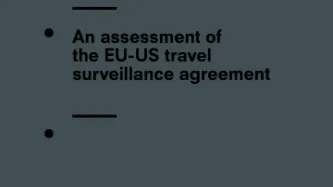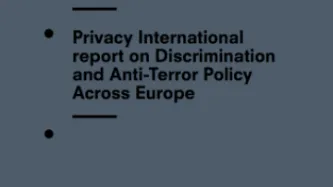Search
Content type: Advocacy
Privacy International's response to the inquiry by the House of Lords Select Committee on Artificial Intelligence.
Content type: Case Study
For those concerned by reporting of Facebook’s exploitation of user data to generate sensitive insights into its users, it is worth taking note of WeChat, a Chinese super-app whose success has made it the envy of Western technology giants, including Facebook. WeChat has more than 900 million users. It serves as a portal for nearly every variety of connected activity in China. Approximately 30% of all time Chinese users spend on the mobile internet centers around…
Content type: Case Study
Political campaigns around the world have turned into sophisticated data operations. In the US, Evangelical Christians candidates reach out to unregistered Christians and use a scoring system to predict how seriously millions these of voters take their faith. As early as 2008, the Obama campaign conducted a data operation which assigned every voter in the US a pair of scores that predicted how likely they would cast a ballot, and whether or not they supported him. The campaign was so confident…
Content type: News & Analysis
Image source: AFP
Earlier this month, the Kenyan daily The Star reported that UK-based data analytics firm Cambridge Analytica had been quietly contracted by President Uhuru Kenyatta’s party in a bid to win himself a second term in office. State House officials were quick to deny the claims, while the company itself issued no comment.
Cambridge Analytica has exploded onto the scene following revelations that its psychometric profiling techniques were used and reportedly played a role in…
Content type: Long Read
Disclaimer: This piece was written in April 2017. Since publishing, further information has come out about Cambridge Analytica and the company's involvement in elections.
Recently, the data mining firm Cambridge Analytica has been the centre of tons of debate around the use of profiling and micro-targeting in political elections. We’ve written this analysis to explain what it all means, and the consequences of becoming predictable to companies and political campaigns.
What does…
Content type: Long Read
Tech firms and governments are keen to use algorithms and AI, everywhere. We urgently need to understand what algorithms, intelligence, and machine learning actually are so that we can disentangle the optimism from the hype. It will also ensure that we come up with meaningful responses and ultimately protections and safeguards.
Many technologists emerge from University, College or graduate courses with the impression that technology is neutral and believe that all systems they apply their…
Content type: Report
The right to privacy is a qualified right. Gender is not and cannot be its qualification.
For this year’s International Women’s Day, the Privacy International Network is sharing some of its successes as well as the challenges and opportunities we face in at the intersection of gender issues and the right to privacy. Click here to see this feature.
Interferences and violations of the right to privacy, as described in the UN Declaration of Human Rights, affect society as a whole. However,…
Content type: News & Analysis
How not to do data-driven due diligence
A powerful new VICE News investigation has blown open the secretive world of risk management and the most influential database you've never heard of: World-Check.
Over 300 government and intelligence agencies, 49 of the 50 biggest banks, and 9 of the top 10 global law firms use World-Check to conduct due diligence, including checking compliance with anti-terrorism financing and sanctions laws. World-Check gathers and analyses open source…
Content type: News & Analysis
Big data consists mainly of data that is openly available, created and stored. It includes public sector data such as national health statistics, procurement and budgetary information, and transport and infrastructure data. While big data may carry benefits for development initiatives, it also carries serious risks, which are often ignored. In pursuit of the promised social benefits that big data may bring, it is critical that fundamental human rights and ethical values are not cast aside.…
Content type: News & Analysis
Large institutions tend to focus internally, with minimal regard to the external environment. Open Databecoming institutionalised is not different, and as a leading edge country in opening data, the UK is making the predictable mistakes first:
The UK’s Department for Education (DfE) is currently considering opening data from the National Pupil Database. At a preparation event for this initiative, at which some data was released for use in an ‘appathon’, one participant believed he…
Content type: News & Analysis
Today, travelling within many cities around the world comes at a cost: privacy.
Electronic ticketing systems are proliferating, but it’s not clear how much information they collect or what they do with it. Privacy International has written to 48 transport authorities and companies operating transport services across the world requesting this data.
The kinds of personal information held about users of London’s Oyster card (which is used to travel by tube, train and bus) include full…
Content type: News & Analysis
The UK Minister for Education, Michael Gove, today stated in Parliament that he would be moving forward his plans to open up the National Pupil Database, and announced a government consultation on the initiative. The Minister promised that "all requests to access extracts of data would go through a robust approval process and successful organisations would be subject to strict terms and conditions covering their handling and use of the data, including having…
Content type: News & Analysis
Modern communications surveillance policy is about gaining access to modern communications. The problem is that the discourse around communications policy today is almost the same as it was when it was simply a question of gaining access to telephone communications. "Police need access to social network activity just as they have access to phone calls" is the politician's line. We use Facebook as an example here, but most internet services will be similar in complexity and legality.
The…
Content type: News & Analysis
Imagine a secret government list of suspicions and allegations, fuelled by unsubstantiated rumours provided by anonymous citizens with undisclosed intentions. The information contained in the list would not be measured against any legal burden of proof or supported by any credible evidence, but would – simply by its existence – become “fact”. Imagine, then, if the government could rely upon such “facts” to identify and implicate individuals for illegal behaviour. Such a system would be…
Content type: News & Analysis
This weekend, the Department for Education sponsored an "appathon", allowing attendees access to the National Pupil Database (which holds information like exam results, special education needs, truancy records and eligibility for free school meals on every child at every state school in the country) and inviting people to build "apps".
The database contains over 400 variables and the records of around 600,000 children. With so many variables, it is a relatively simple task to…
Content type: Report
This is a memo prepared by Barry Steinhardt of Friends of Privacy USA for Members of the European Parliament regarding the proposed EU-US Agreement PNR.
The proposed agreement regarding Passenger Name Records (PNR) between the United States and the European Union is riddled with faulty assertions and assumptions about US law and the actual operations of the US government.
These faulty assertions and assumptions go to the heart of the agreement and undercut the claims of protections for…
Content type: News & Analysis
Last month, within thirty seconds of the BBC publishing a quotation from me on the latest round of the nymwars and Google+, my phone rang. Caller ID indicated that it was someone I know who works at Google. "Had I said something wrong?" was my first thought. I quickly retraced in my mind what it was that I had said to the journalist; I had responded in the article that Google's recent announcement could be seen as positive but really it was a sidestepping of the larger challenge of identity…
Content type: News & Analysis
Inspired by the Europe v Facebook campaign and further motivated by revelations that individuals associated with WikiLeaks and the Occupy movements in Boston and New York have had their Twitter data disclosed to American law enforcement authorities, Privacy International is launching a campaign to encourage European data subjects to get access to the personal information that Twitter holds on them.
Our campaign aims to achieve two objectives: to help European citizens exercise their rights and…
Content type: News & Analysis
Facebook's new "Download your Information" feature reveals a radically different interpretation of transparency to one that the rest of us in Europe might hold. The feature may be a promising start, but the company still clearly has difficulty understanding the requirements of European Data Protection law. The feature provides only a fraction of the personal information held by Facebook and is thus still in violation of law.
The company may escape a prosecution under the UK Trades Description…
Content type: News & Analysis
On the 2nd of August 2011 the Hamburg Commissioner for Data Protection and Freedom of Information has called on Facebook to delete the feature on the social networking site that automatically recognizes facial features and "tags" users when others upload photos of them. According to the local German data protection authority the feature is a violation of local and European data protection laws, and Facebook should adapt the feature to European data protection law or suspend the use of the…
Content type: News & Analysis
An international alliance of organisations and individuals from 27 countries has lodged a petition calling on the Council of Europe to start an indepth survey on the collection and storage of biometric data by member states.
European governments are increasingly demanding storage of biometric data (fingerprints and facial scans) from individuals. These include storage on contactless 'RFID' chips in passports and/or ID cards. Some are going even further by implementing…
Content type: News & Analysis
The Active Millimeter Wave body scanners that airport security officials plan to use in greater numbers after a failed attempt to explode a bomb in a plane over Detroit raise troubling questions about passenger privacy, and ultimately the technology’s utility as a security measure.
While Privacy International supports the adoption of measures that will genuinely protect the security of passengers, we are deeply concerned that airport and security authorities increasingly deploy fashionable and…
Content type: News & Analysis
Privacy International's recent complaint to the UK Information Commissioner has threatened to bring to a halt an imminent plan to fingerprint all domestic and international passengers departing from Heathrow's Terminal 1 and Terminal 5, due to begin on March 27th. The British media is reporting that in response to PI's complaint, the Information Commissioner has advised that passengers should only accept fingerprinting "under protest" until our complaint is resolved.
The prospect of…
Content type: Report
Race relations across European states are usually far from ideal. However in law, European countries appear to grant Europeans ideal protections against discrimination. There are mounting tensions with ethnic and minority communities in countless European countries, with particular suspicion and aggression pointed towards the Roma people, Travellers, Northern Africans, Turks, Jehovah’s Witnesses, and people of Islamic and other faiths. Increasingly these groups are finding safe havens behind…
Content type: News & Analysis
In a tipping of the hat to the Americans, the UK is set to establish the largest border surveillance programme to date. The new programme will involve the collection of biometrics on visitors to the UK, the generation of vast information stores on all Britons and visitors, and a profiling system to identify those worthy of further scrutiny.
This programme does not merely apply to combatting terrorism however; it is for use for general policing matters.
We have archived the 'partial'…
Content type: News & Analysis
The Government Accounting Office of the US government reports that creating a new system to keep track of the locations of aliens or visitors to the US is of 'questionable' value. This report, required by the Enhanced Border Security and Visa Reform Act of 2002, reflects the challenges faced by INS when they were asked to identify the location of over 4000 individuals in the days after 11th September 2001.
Most of the Immigrations and Customs Enforcement agents who were consulted in the…
Content type: News & Analysis
In a number of reports released today, the UK government acknowledged that there has been an increase in stop and searches in the past year. According to the Home Office Stop and Search Team's Strategy Report, "Stop and search is a police power which, if used fairly and effectively, can play an important role in detecting and preventing crime and the fight against terrorism."
But they admit that the power is used increasingly in unfair ways:
This is under Section 95 of the Criminal…


























